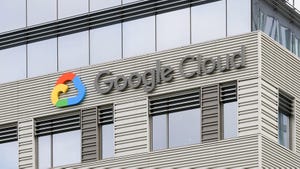Facebook's Green Data Center, Powered by Coal?Facebook's Green Data Center, Powered by Coal?
Facebook is emphasizing the energy efficiency in the design of its new Oregon data center. But much of the electricity powering the facility will be generated from coal, not hydro.
February 2, 2010
Here's an interesting wrinkle on the unveiling of the new Facebook data center in Prineville, Oregon. In announcing the facility, Facebook emphasized its energy efficiency and use of renewable power resources. Cheap, green hydro power was a major attraction when Google built a data center in Oregon, so it was assumed that the Facebook data center would be supported primarily by hydro power from the Bonneville Power Administration (BPA).
Not so, according to Matt Stansberry from SearchDataCenter. Matt, an Oregon resident, took a closer look at the utility power that will support Facebook.
"Pacific Power, a utility owned by PacifiCorp, will provide the electricity" in Prineville, Matt writes. "While Pacific Power gets some hydropower from BPA, its primary power-generation fuel is coal, according to Jason Carr, the manager of the Prineville office of economic development for Central Oregon."
It turns out the BPA will soon be implementing a tiered pricing system in which new customers will pay a higher rate to offset the costs of non-hydro generation the BPA will purchase to meet growing demand.
"With the price of hydropower increasing in the Northwest, Facebook opted to bet on the incremental price increases associated with coal rather than face tier-two pricing from BPA," Matt writes.
This is a good example of the "clean vs. cheap" dilemma faced by data centers with massive power requirements. Companies like Google and Facebook want to be as green as possible, but must also control costs. The economics of on-site generation of using wind or solar power still don't add up for most providers. That means the best way to use more renewable energy in the data center is to buy it from the utility company.
You'd think sourcing clean power would be straightforward in a state like Oregon, where hydro represents about 60 percent of power generation. As Facebook illustrates, the tension between environmental green and economic green is usually resolved in favor of the greenbacks.
About the Author
You May Also Like







